Introduction to Chattarpur Mandir
Located in the southern part of Delhi, Chattarpur Mandir stands as one of the most revered Hindu temple complexes in India. Known for its stunning architecture, spiritual atmosphere, and sprawling grounds, the temple attracts thousands of devotees and tourists each year. The experience is enriched by the gentle sound of bells, the scent of incense, and the sight of intricately carved marble, making every visit memorable.
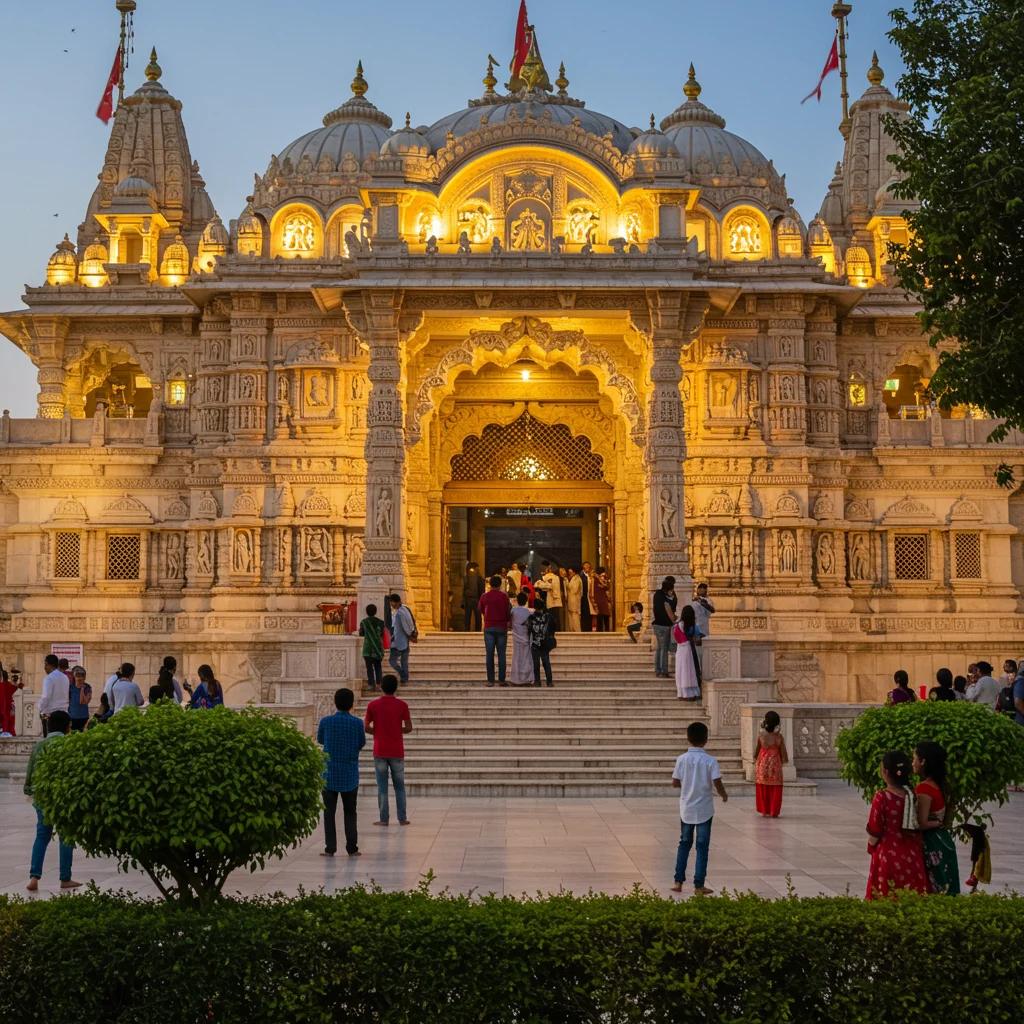
This guide covers everything you need to know about the temple’s location, history, architecture, timings, rituals, and facilities, ensuring your visit is both smooth and meaningful.
Where is Chattarpur Mandir Located?
Chattarpur Mandir is situated in the Chattarpur area of South Delhi, India. The temple complex is conveniently positioned along the Mehrauli-Gurgaon Road, making it easily accessible by various modes of transport. Its proximity to other key city landmarks and residential neighborhoods allows visitors to combine their temple visit with other sightseeing opportunities.
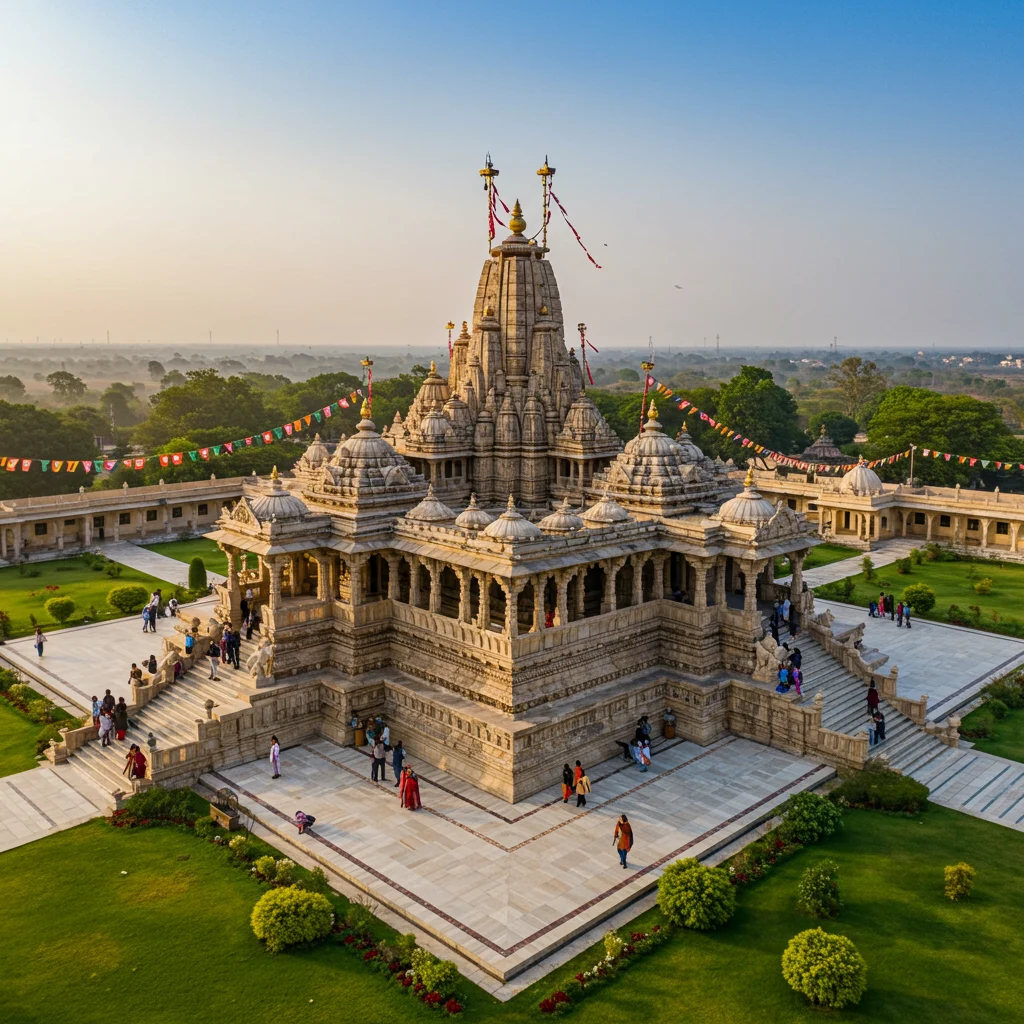
Surrounded by lush greenery and a peaceful ambiance, the temple offers a welcome retreat from the city’s bustle. The location is well-signposted and recognized as a significant spiritual destination in Delhi.
Why is Chattarpur Mandir Famous?
The fame of Chattarpur Mandir rests on its combination of spiritual significance, grand architecture, and its role as a center for major Hindu festivals. Devotees are drawn to the temple for its beautiful shrines dedicated to Goddess Katyayani and other deities, as well as the impressive scale of the complex, which is among the largest in India.
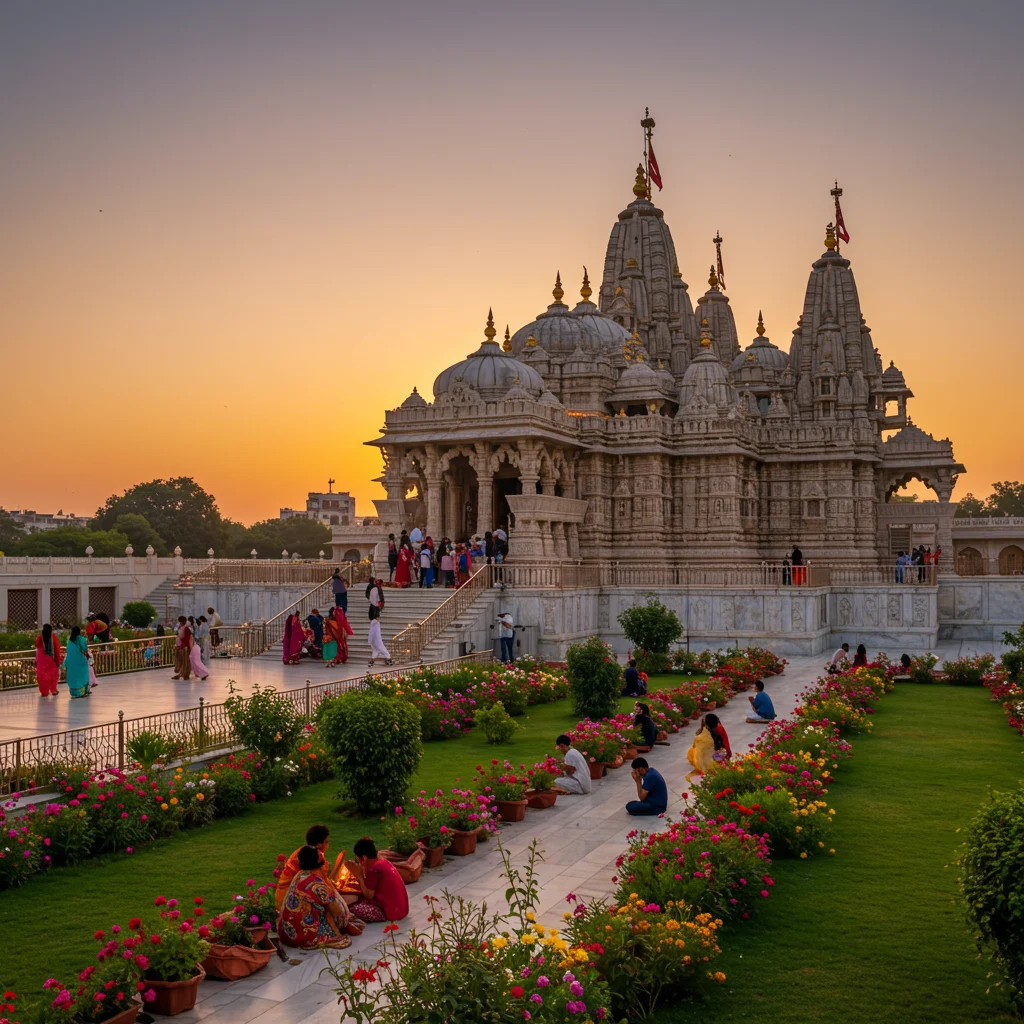
The temple is especially renowned during Navratri, when thousands gather for vibrant celebrations, rituals, and fairs. Its serene courtyards, marble halls, and ornate sculptures also make it a favorite spot for those interested in art and history.
History of Chattarpur Mandir
The story of Chattarpur Mandir is deeply rooted in devotion and community spirit. The temple was established in the late 20th century and has since evolved into a beacon of faith and cultural heritage.
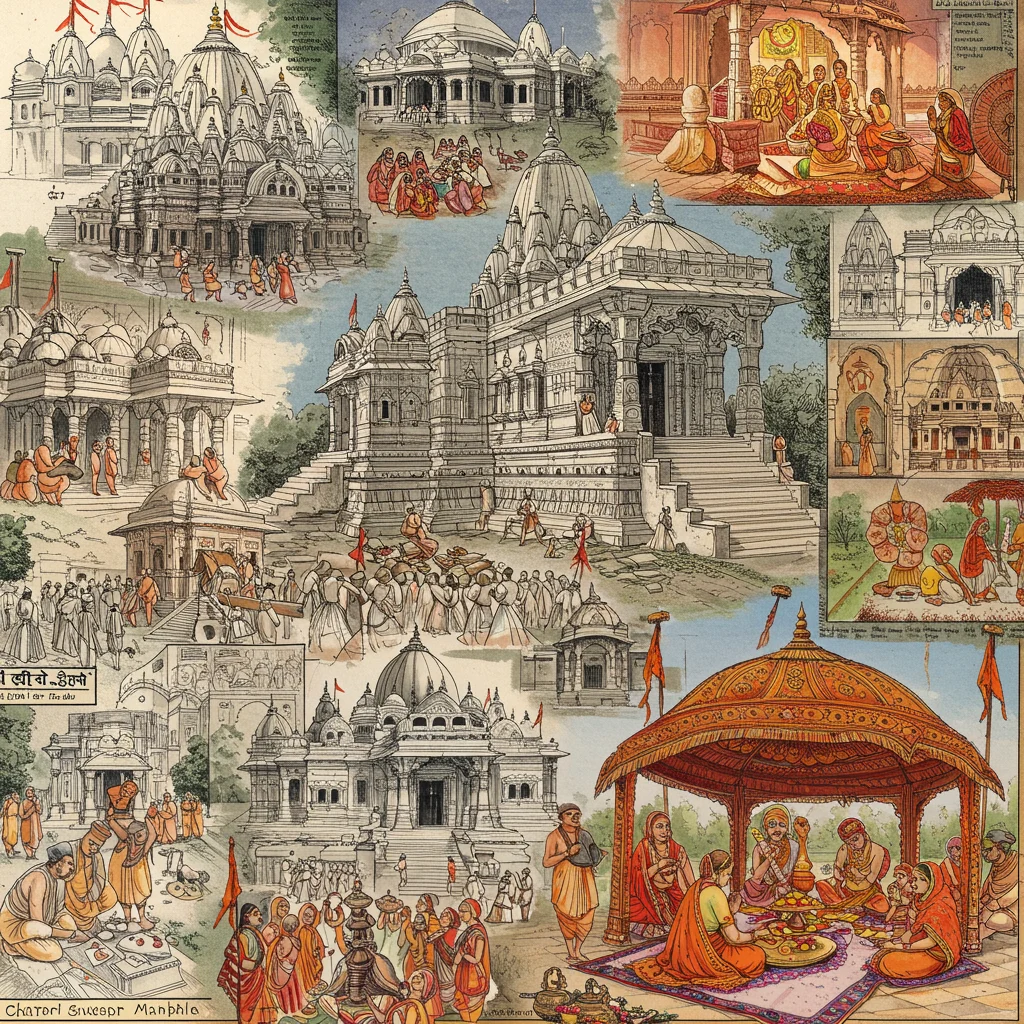
Who Built Chattarpur Mandir?
Chattarpur Mandir was founded by Baba Sant Nagpal Ji, a revered spiritual leader. His vision was to create a sanctuary for worship and meditation, open to all devotees regardless of caste or creed. Under his guidance, the temple grew rapidly, earning admiration for both its spiritual and social contributions.
Key Historical Events at the Temple
Over the years, the temple has hosted numerous significant events, particularly during major Hindu festivals. The annual Navratri celebrations have become legendary, drawing pilgrims from all over the country.
In addition, the temple has been a venue for charitable initiatives and community gatherings, reinforcing its role as a center for both faith and service. Its continued expansion and upkeep demonstrate the enduring commitment of devotees and trustees.
Architectural Highlights of Chattarpur Mandir
The architecture of Chattarpur Mandir is a visual delight, blending traditional North Indian temple styles with modern engineering. The complex covers a vast expanse, with gleaming white marble, towering spires, and elaborately decorated gateways.
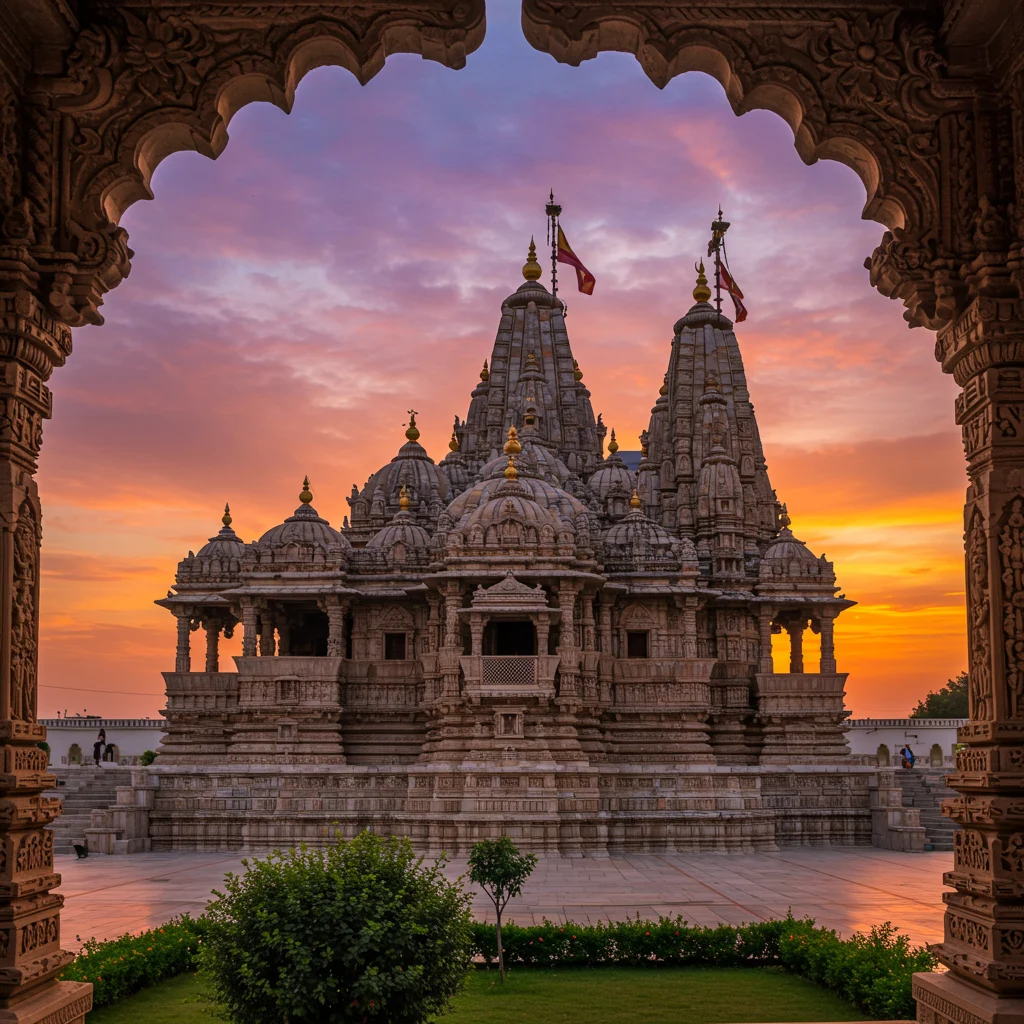
Visitors often remark on the sense of peace that pervades the structure, from the cool marble floors underfoot to the play of sunlight across the intricately carved pillars.
What Architectural Style is Used?
The temple is built in the Vesara style, which combines elements of both North and South Indian temple architecture. This hybrid approach is evident in the curvilinear shikharas (spires), grand entranceways, and the extensive use of marble throughout the complex.
Unique Features of the Temple Complex
Chattarpur Mandir is not only vast but also thoughtfully designed. The complex includes multiple shrines, gardens, and courtyards, each adding to the spiritual and aesthetic appeal.
Significance of the Marble Work
The marble work in Chattarpur Mandir is both functional and decorative. Cool to the touch even in Delhi’s summer heat, the marble creates a sense of purity and tranquility, while the gleaming surfaces reflect natural light, enhancing the temple’s serene ambiance.
Intricate Carvings and Sculptures
One of the most striking aspects of the temple is its intricate carvings and sculptures. Each pillar, arch, and dome is adorned with detailed motifs depicting scenes from Hindu mythology, floral patterns, and geometric designs.
As experts often say:
“Architecture should speak of its time and place, but yearn for timelessness.”
These carvings not only showcase artistic excellence but also immerse visitors in the stories and symbolism of Hindu tradition.
Chattarpur Mandir Timings & Schedule
Understanding the timings and daily schedule is essential for planning a fulfilling visit. The temple observes a structured routine, balancing accessibility with the needs of daily worship and maintenance.
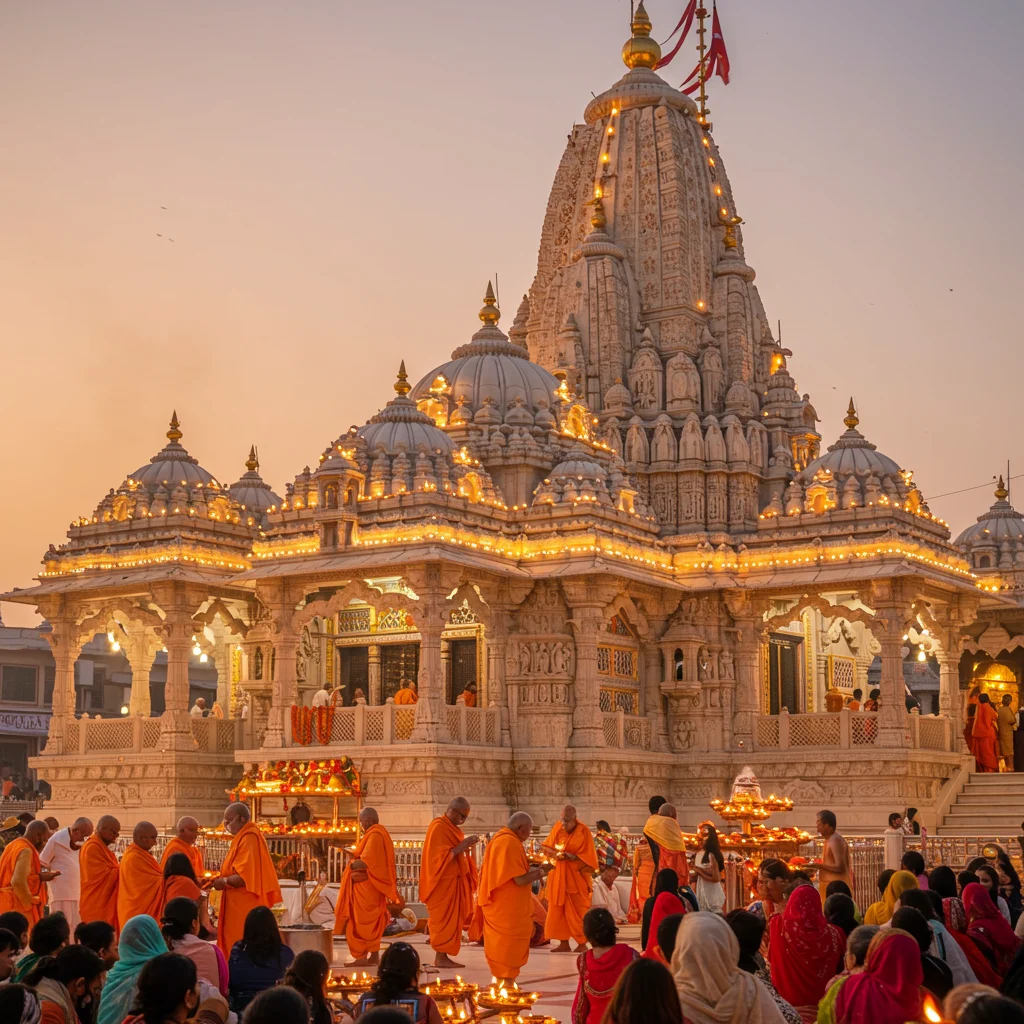
What are the Daily Opening and Closing Times?
Chattarpur Mandir generally opens to visitors at 6:00 AM and closes at 10:00 PM. These hours provide ample time for devotees to participate in rituals, meditate, or simply enjoy the tranquil setting.
Aarti Timings at Chattarpur Mandir
The temple conducts several aarti ceremonies throughout the day. The main morning aarti typically takes place around 6:30 AM, followed by a mid-day aarti and an evening aarti at approximately 7:00 PM. These rituals are accompanied by devotional singing, rhythmic clapping, and the soft glow of oil lamps.
Special Timings During Festivals
During major festivals such as Navratri, the temple extends its hours to accommodate the larger crowds and special ceremonies. On these days, the temple may remain open late into the night, with additional aartis and cultural programs.
Seasonal Variations in Temple Timings
While the core timings remain consistent, minor adjustments may occur during extreme weather or special occasions. It’s always wise to check the official website or contact temple authorities before planning your visit, especially during peak festival seasons.
Best Time to Visit Chattarpur Mandir
Selecting the best time to visit can greatly enhance your experience, allowing you to enjoy the temple’s beauty and atmosphere to the fullest.
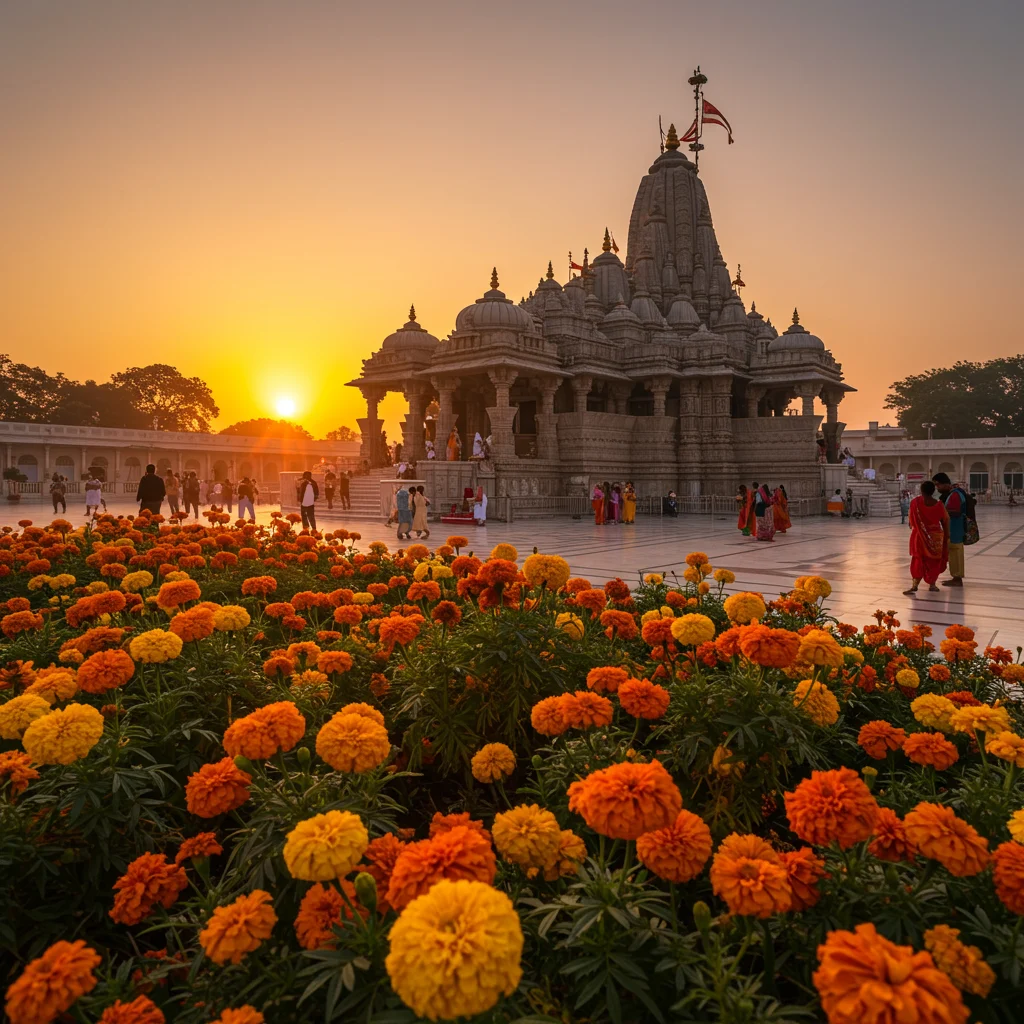
Which Months are Ideal for Visiting?
The months between October and March are considered the most pleasant for visiting Chattarpur Mandir. During this period, Delhi’s weather is cooler and more comfortable, making it easier to explore the extensive temple grounds.
If you’re interested in religious festivals and vibrant cultural activities, timing your visit with Navratri can be especially rewarding.
What is the Crowd Situation During Festivals?
Festivals, particularly Navratri, draw massive crowds to the temple. The atmosphere is electric, with music, chanting, and a sea of devotees moving through the complex. While the crowds can be overwhelming for some, they also offer a unique opportunity to witness the temple at its most lively and energetic.
For those who appreciate immersive cultural experiences, this is similar to the excitement found at popular religious sites worldwide, such as those highlighted in our coverage of must-see attractions in Cusco.
How to Reach Chattarpur Mandir?
Reaching Chattarpur Mandir is straightforward, thanks to its well-connected location. Multiple transportation options are available, catering to both local residents and out-of-town visitors.
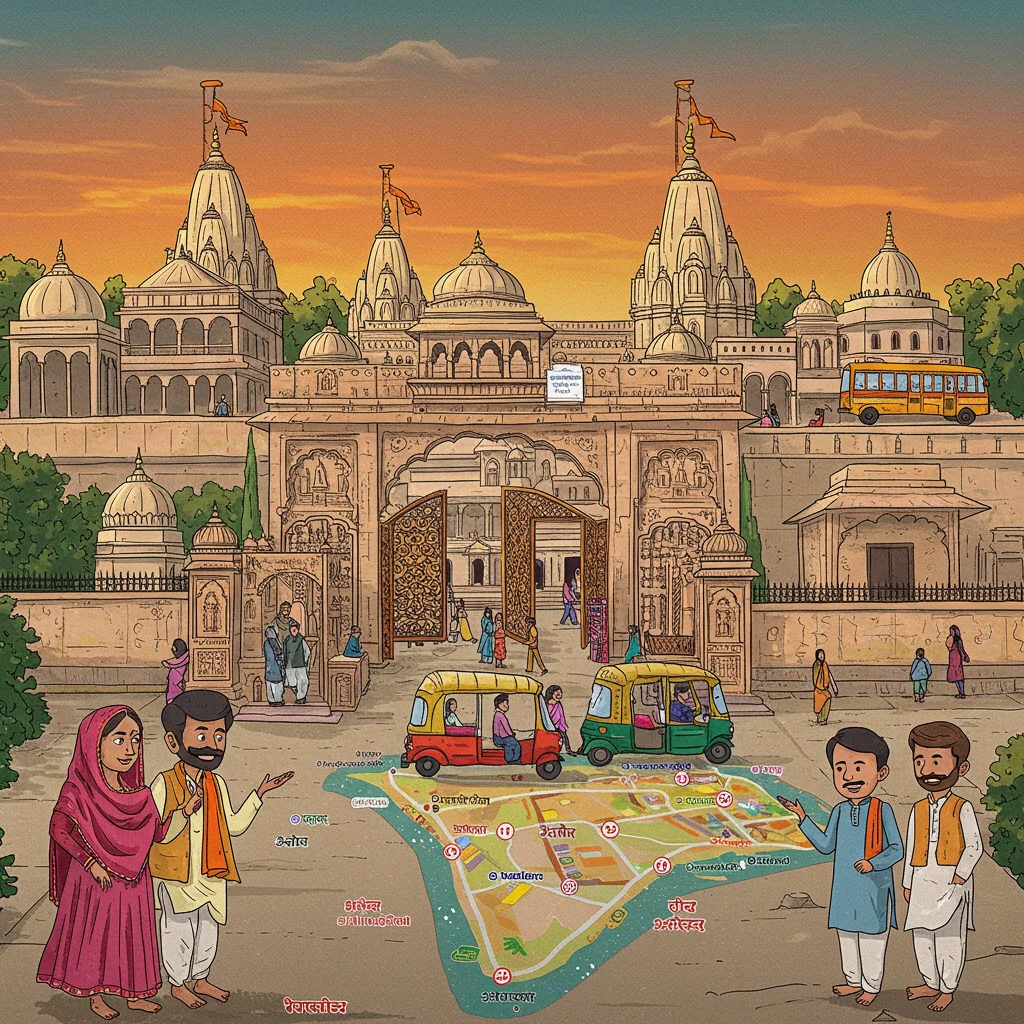
By Metro: Nearest Metro Station
The most convenient way to reach the temple is by the Delhi Metro. The Chattarpur Metro Station on the Yellow Line is just a short walk from the temple gates. Clear signage and pedestrian pathways guide visitors from the station to the complex.
By Road: Directions and Parking
For those driving, the temple is accessible via the Mehrauli-Gurgaon Road. Well-maintained roads and clear directional signs make navigation easy, even for first-time visitors. Ample parking is available, but it can fill up quickly during festivals.
By Bus and Other Public Transport
Several Delhi Transport Corporation (DTC) buses pass near the temple, providing an affordable option for reaching the complex. Auto-rickshaws and taxis are also readily available throughout the city.
Parking Facilities at Chattarpur Mandir
The temple offers dedicated parking areas for both cars and two-wheelers. Security personnel manage these lots, especially during busy times, to help ensure a safe and organized experience for all visitors.
Temple Complex Layout
The layout of Chattarpur Mandir is both grand and thoughtfully organized. Visitors can easily navigate between the main shrines, gardens, and auxiliary buildings, each designed to foster a sense of peace and devotion.
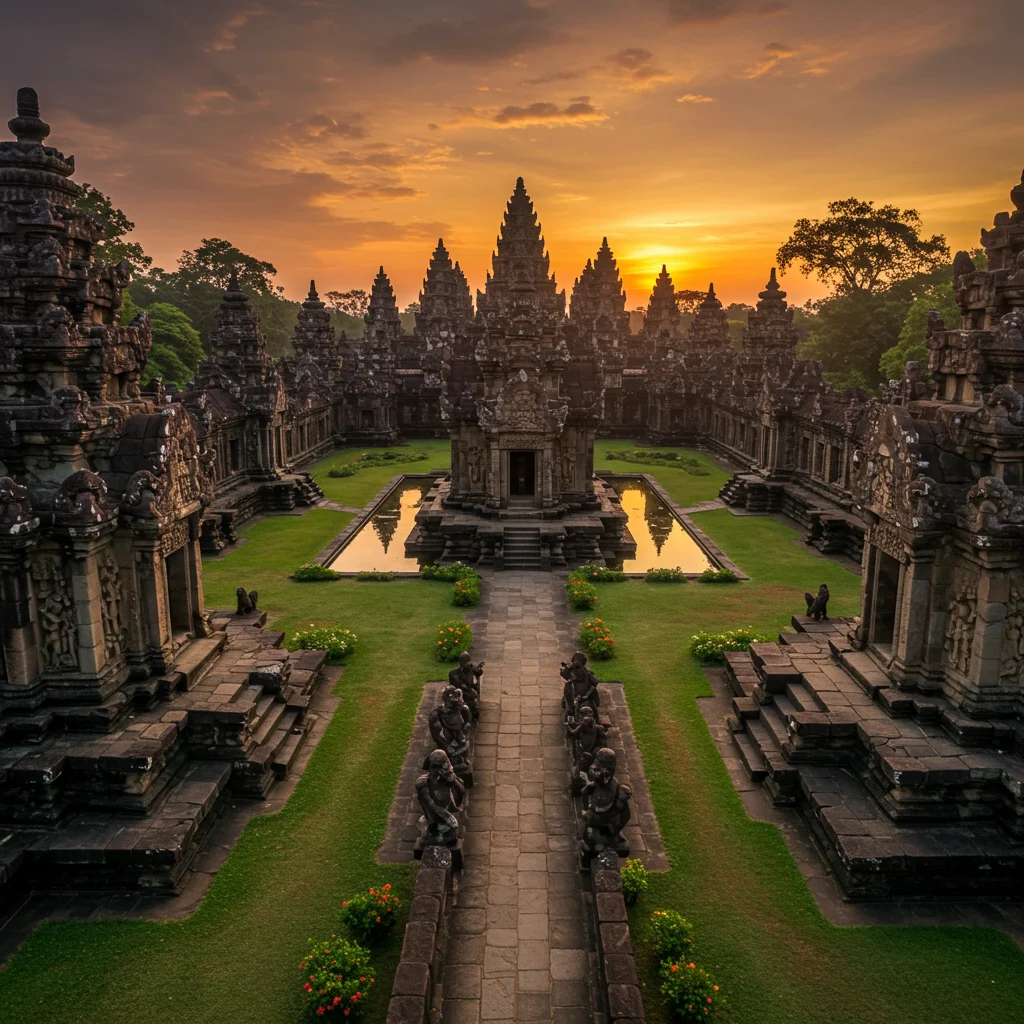
Main Shrines and Deities
The central focus of the complex is the shrine dedicated to Goddess Katyayani, a powerful form of the Divine Mother. Other important deities worshipped here include Lord Shiva, Lord Vishnu, and Lord Ganesha, each enshrined in beautifully adorned sanctums.
Other Temples Within the Complex
In addition to the primary shrines, several smaller temples are scattered throughout the grounds. These include temples for Radha-Krishna, Rama, and Hanuman, allowing devotees to offer prayers to multiple gods during a single visit.
Sacred Trees and Courtyards
The temple grounds feature several sacred trees, including ancient banyans and peepals, which are considered auspicious in Hindu tradition. Courtyards and gardens provide tranquil spaces for meditation and reflection, enhanced by the gentle rustle of leaves and the fragrance of blooming flowers.
Important Rituals at Chattarpur Mandir
The rituals conducted at Chattarpur Mandir are central to its spiritual life. Visitors are welcome to participate or observe, gaining insight into Hindu worship practices.
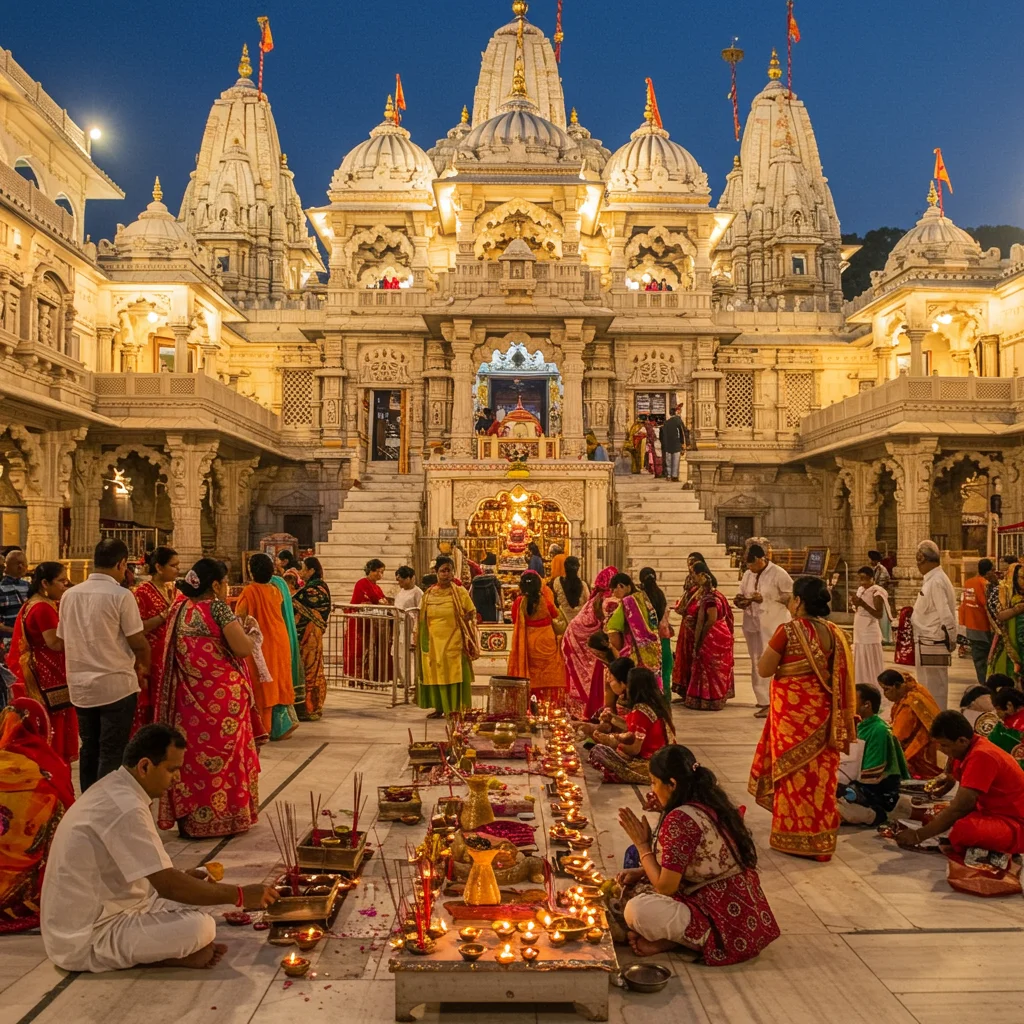
Daily Poojas and Ceremonies
Each day, the temple priests conduct a series of poojas and ceremonies, including traditional aartis, abhishekas (ritual bathing of deities), and special offerings. The sound of bells and chants fills the air, creating a deeply spiritual atmosphere.
Those interested in guided religious experiences may find parallels with international guided tours, as described in our overview of the best guided tours of historical sites.
Festivals Celebrated at Chattarpur Mandir
The temple is renowned for its festival celebrations, which bring together thousands of devotees in joyous worship and cultural festivities.
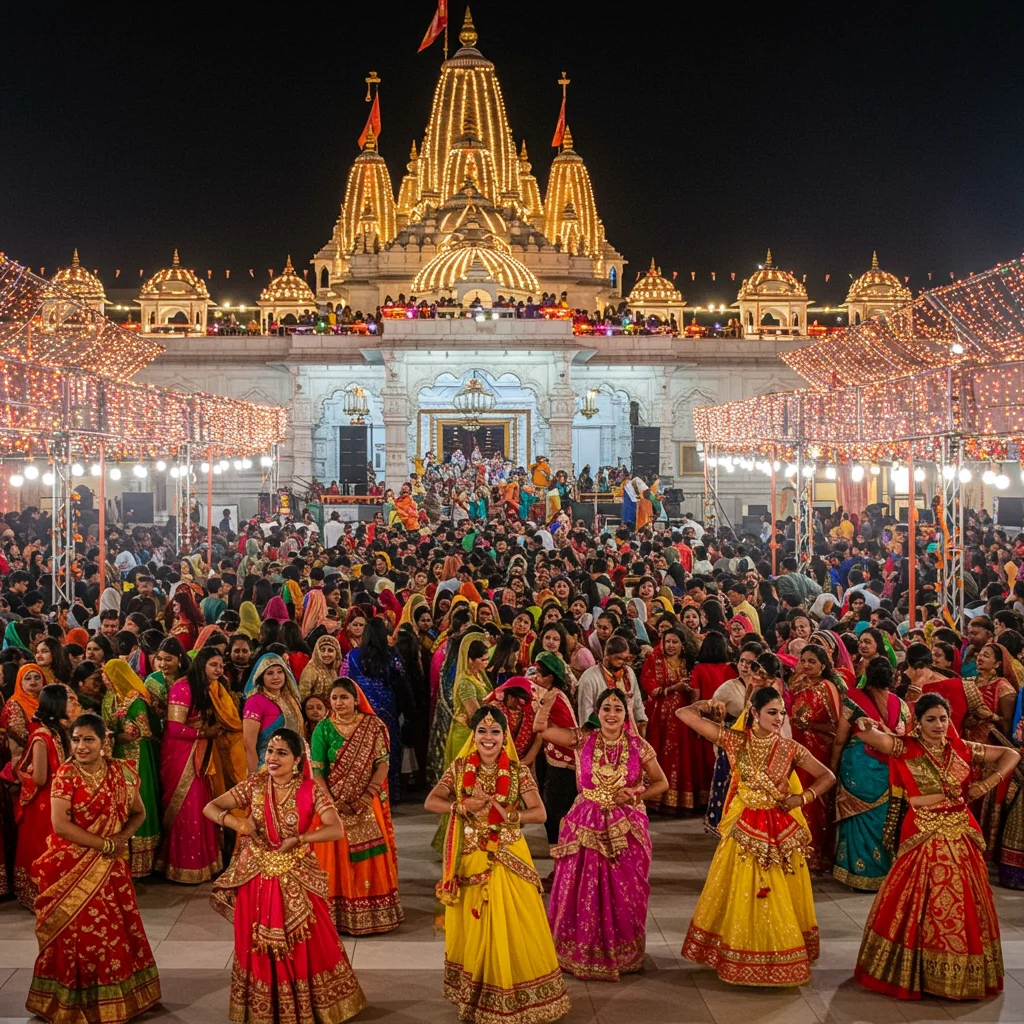
Navratri Celebrations
Navratri is the most significant festival observed at Chattarpur Mandir. For nine days, the temple comes alive with elaborate decorations, devotional singing, and special rituals dedicated to the Divine Mother. Temporary stalls, food offerings, and cultural programs add to the festive spirit.
Other Major Festivals
In addition to Navratri, festivals such as Diwali, Holi, and Janmashtami are celebrated with equal enthusiasm. Each occasion features unique rituals, music, and communal gatherings, inviting participation from people of all ages.
Special Events and Fairs
Throughout the year, the temple hosts special events and fairs, including charity drives, religious discourses, and cultural exhibitions. These events foster a sense of community and offer visitors a chance to engage more deeply with the temple’s traditions.
Temple Etiquette and Dress Code
Observing proper etiquette and dress code is essential when visiting Chattarpur Mandir. These guidelines help maintain the sanctity of the temple and show respect for its religious practices.
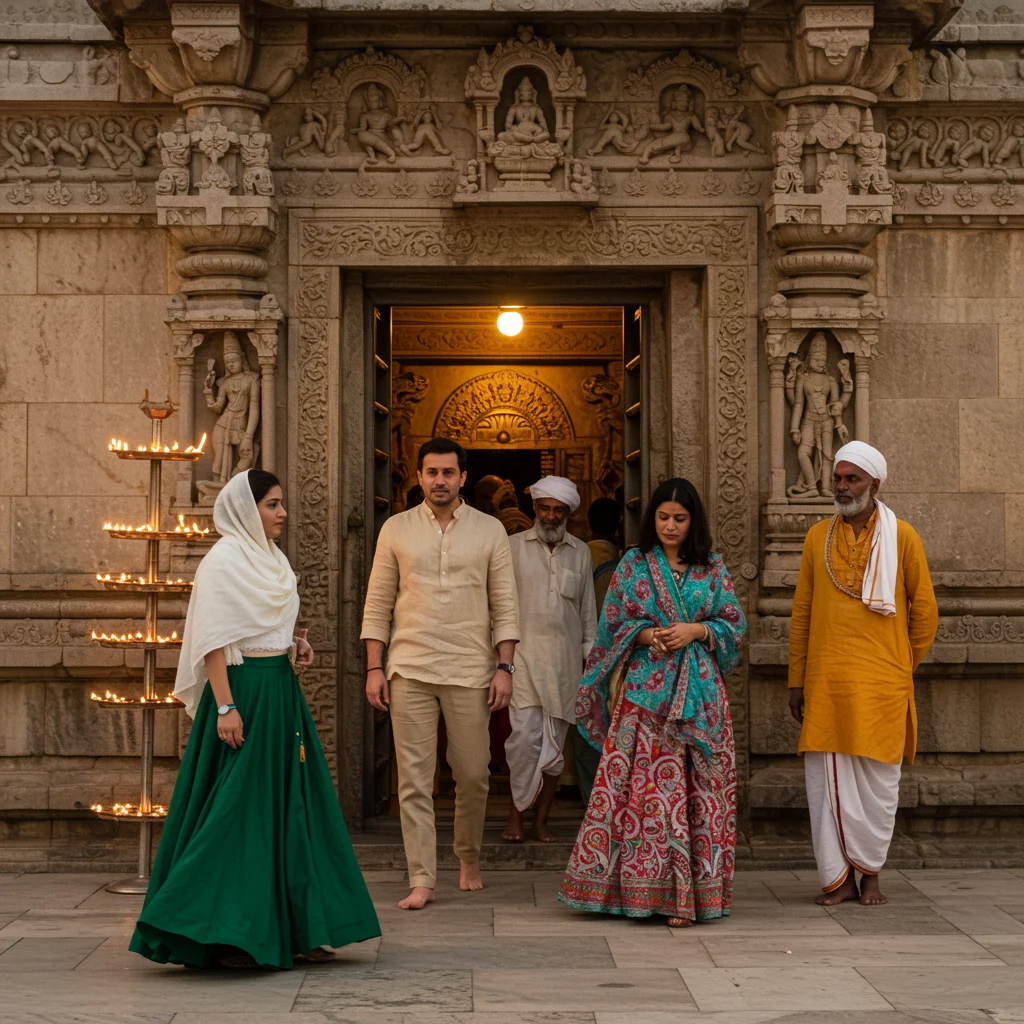
What Should Visitors Wear?
Modest attire is recommended for all visitors. Men and women should wear clothing that covers shoulders and knees. Bright, clean clothes are preferred, and footwear must be removed before entering the main temple areas.
Rules and Regulations for Devotees
Visitors are expected to maintain silence inside the sanctum, refrain from touching idols, and follow the instructions of temple staff. Photography and mobile phone use are restricted in certain areas to preserve the spiritual environment.
Facilities Available at Chattarpur Mandir
Chattarpur Mandir is equipped with a range of facilities to enhance the comfort and convenience of its visitors. These amenities are thoughtfully designed to meet the needs of devotees from all walks of life.
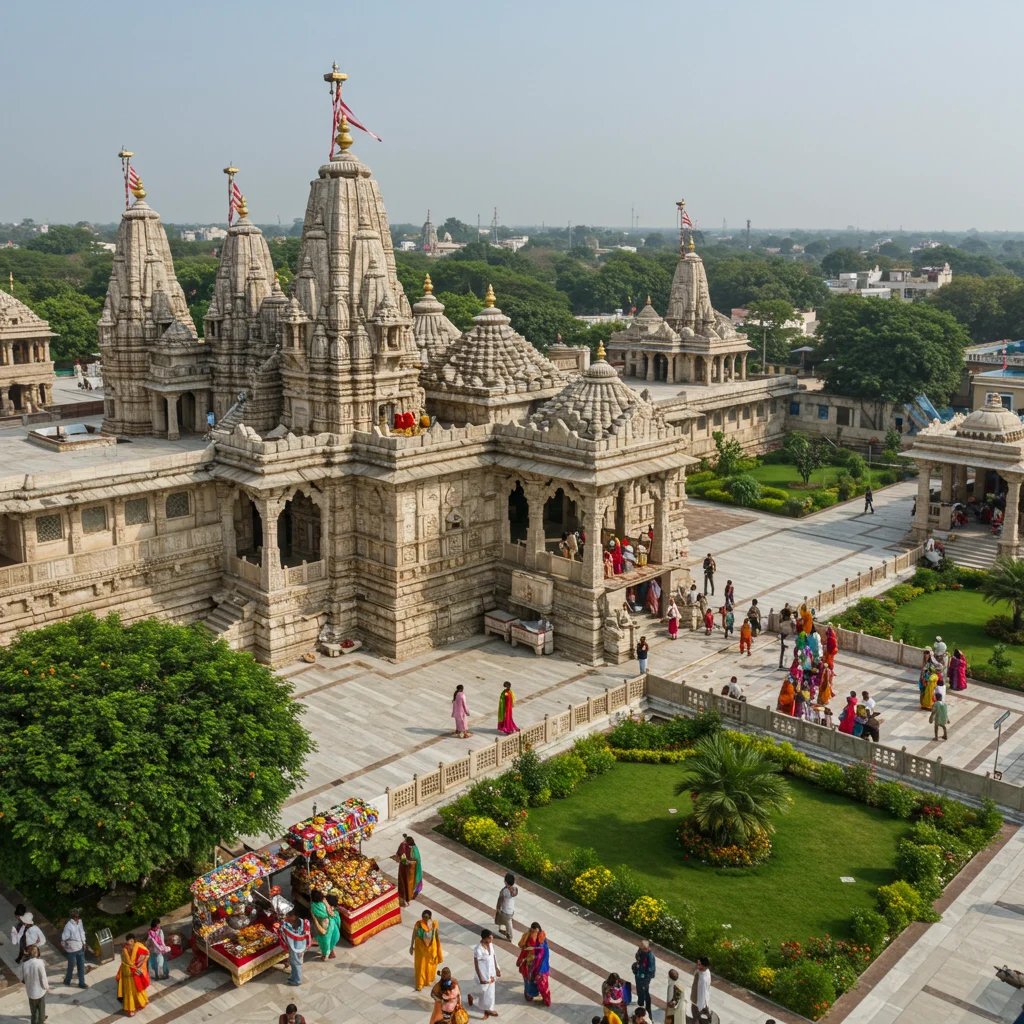
Prasad Distribution and Bhojanalaya
The temple provides prasad (blessed food) to devotees after major rituals. A dedicated bhojanalaya (community dining hall) serves simple vegetarian meals, especially during festivals and special occasions.
Restrooms and Drinking Water
Clean restrooms and drinking water stations are available throughout the complex, ensuring comfort during your visit. Signs clearly indicate the location of these facilities.
Wheelchair Accessibility
Efforts have been made to ensure wheelchair accessibility across the main areas of the temple. Ramps and wide pathways facilitate movement for visitors with mobility challenges.
Shops and Souvenirs
Several small shops within the temple complex offer religious souvenirs, incense, prayer items, and devotional music CDs. These shops provide a wonderful opportunity to take home a memento of your visit.
For those who appreciate exploring cultural and historical sites, our article on top guided archaeology tours highlights similar experiences in other parts of the world.
Photography and Mobile Usage Guidelines
The temple maintains clear guidelines regarding photography and mobile phone usage to protect the sanctity of the sacred spaces and ensure a respectful atmosphere.

Is Photography Allowed in the Temple?
Photography is generally not permitted inside the main sanctum to preserve the spiritual focus of the temple. However, visitors may be allowed to take pictures in the outer courtyards and gardens, provided they do not disturb ongoing rituals or other devotees.
Mobile Phone Restrictions
Mobile phones should be kept on silent mode at all times. Talking on the phone is discouraged inside the temple premises, and some areas may require visitors to deposit their devices before entry.
Nearby Attractions to Chattarpur Mandir
The area surrounding Chattarpur Mandir offers a variety of attractions for those interested in history, spirituality, and leisure.
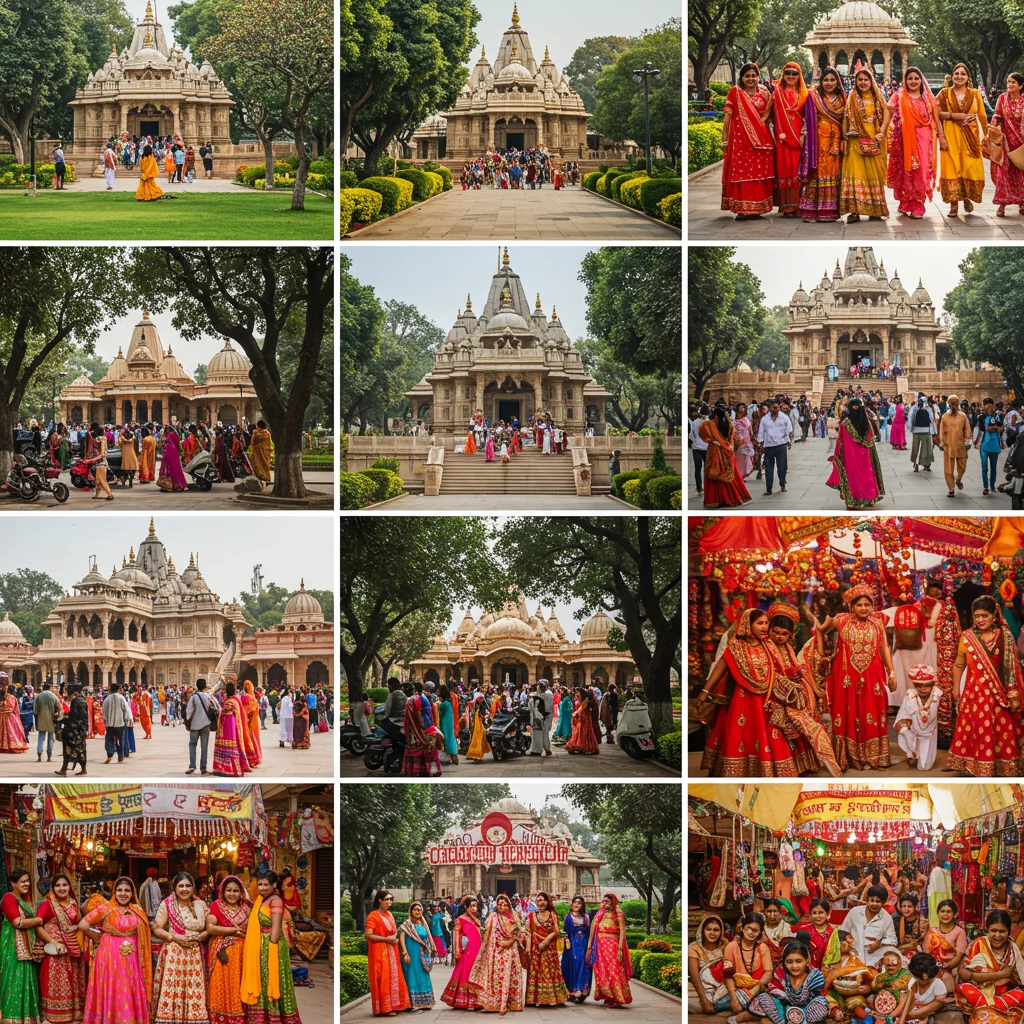
Famous Temples and Religious Sites
Nearby religious sites include the Qutub Minar complex, ISKCON Temple, and Lotus Temple, each offering a distinct spiritual and architectural experience.
If you are interested in guided historical site visits, you may appreciate the structure and convenience offered by tours such as the Krakow to Auschwitz Birkenau guided tour, which we have previously discussed.
Parks and Historical Monuments
For those who enjoy natural beauty, the Garden of Five Senses and Mehrauli Archaeological Park are excellent options nearby. These locations provide peaceful environments for relaxation and exploration.
Where to Eat Near Chattarpur Mandir?
After a spiritually uplifting visit, many visitors seek out food options nearby. The Chattarpur area offers a variety of choices to suit different tastes and preferences.
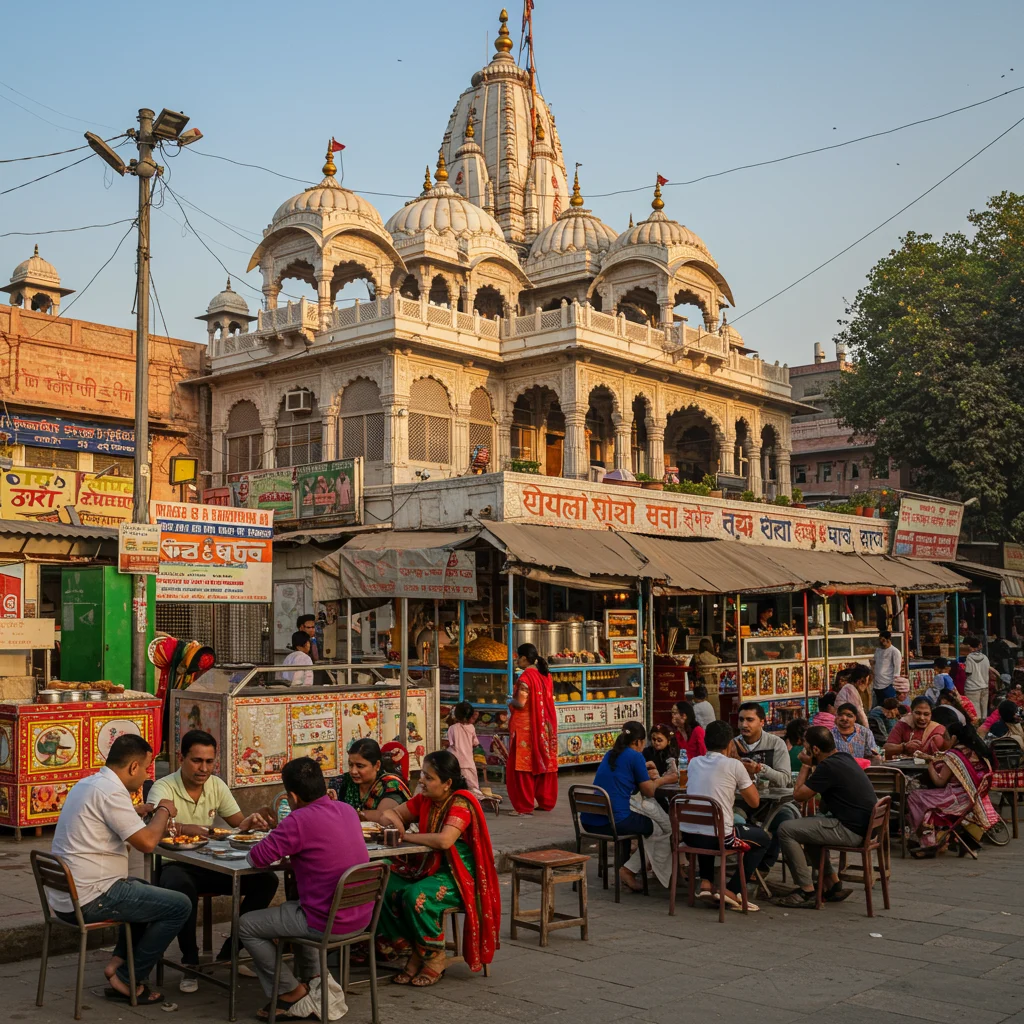
Popular Restaurants and Food Stalls
There are several popular vegetarian restaurants and food stalls close to the temple, serving North Indian, South Indian, and street-style dishes. The aroma of freshly prepared snacks and sweets often greets visitors as they exit the temple grounds.
Street Food Options
For those seeking a more authentic local experience, the surrounding streets offer a range of street food options such as chaat, samosas, and jalebis. These treats are best enjoyed fresh and hot, adding a flavorful end to your temple visit.
Accommodation Near Chattarpur Mandir
Whether you are a pilgrim or a tourist, finding suitable accommodation near Chattarpur Mandir is relatively easy. Options range from luxury hotels to budget guesthouses.

Hotels and Guesthouses
Several well-rated hotels and guesthouses are located within a short distance of the temple. Many offer amenities such as air conditioning, complimentary breakfast, and easy access to public transport.
Budget Stays and Dharamshalas
For those on a tighter budget, dharamshalas (pilgrim hostels) and budget lodges offer affordable, no-frills accommodation. These facilities are often run by charitable trusts and provide a clean, safe environment for travelers.
Safety Tips for Visitors
A safe and enjoyable visit to Chattarpur Mandir depends on being mindful of a few basic precautions. Awareness and preparation are key, especially during crowded festivals or busy weekends.
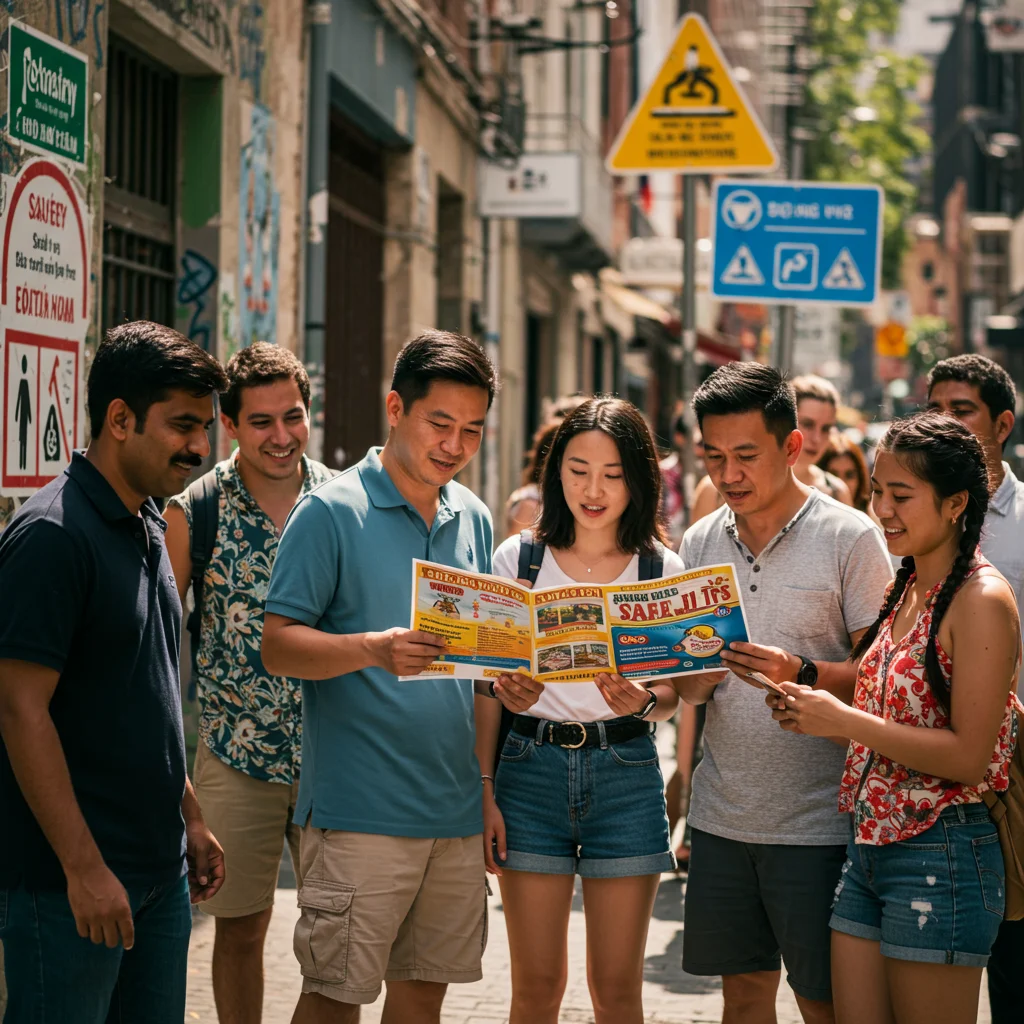
What to Watch Out for During Your Visit?
We recommend keeping personal belongings secure and being wary of pickpockets in crowded areas. It’s best to avoid carrying large amounts of cash and to use temple lockers when available.
Tips for Families and Solo Travelers
Families should keep children close, particularly during festivals when the crowds can be dense. Solo travelers may wish to inform someone of their itinerary and avoid isolated areas after dark. These tips apply broadly to travel at major religious and cultural sites, just as we have detailed in our discussion of safe travel practices at top tourist destinations.
FAQs About Chattarpur Mandir
Below are answers to some of the most common questions about visiting Chattarpur Mandir.
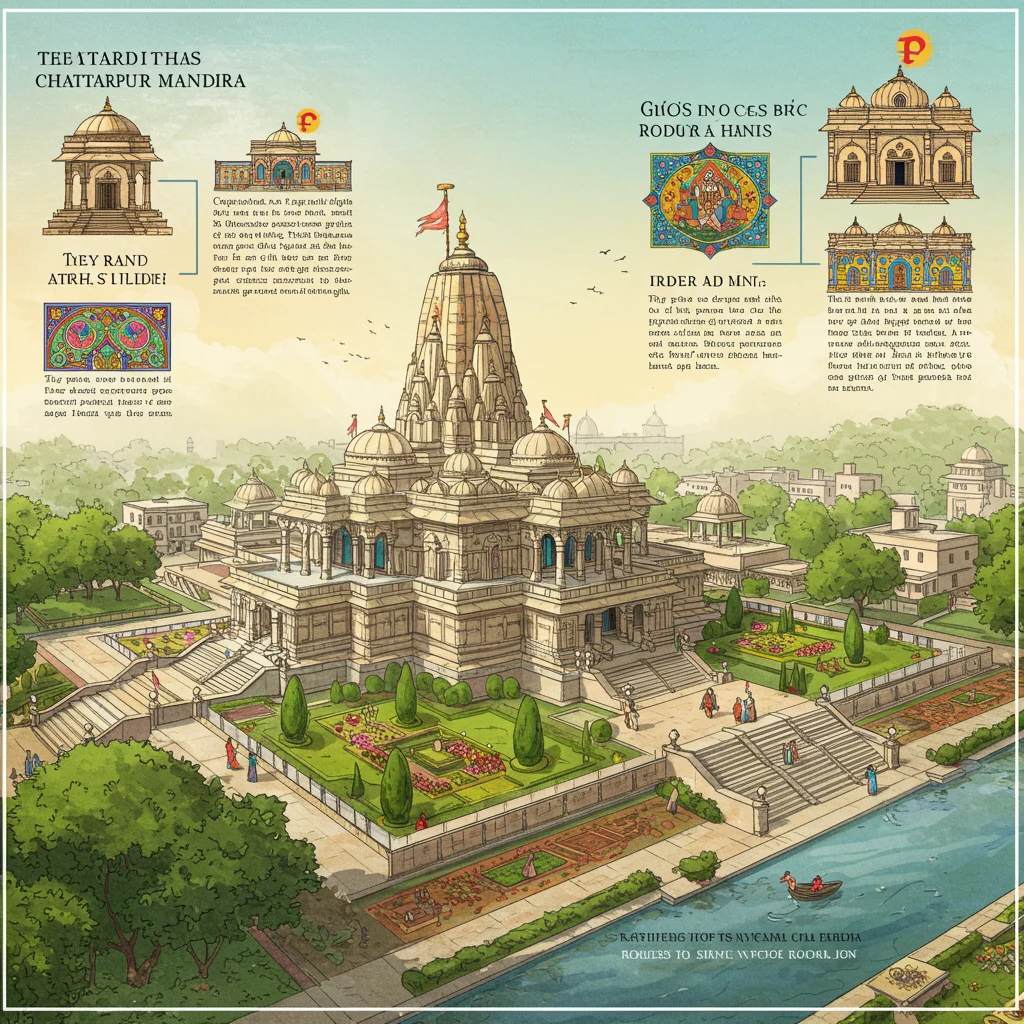
Is There an Entry Fee?
There is no entry fee to visit Chattarpur Mandir. The temple is open to all, regardless of background or nationality.
Can Foreigners Visit the Temple?
Yes, foreigners are welcome at Chattarpur Mandir. Respectful attire and behavior are expected, and staff are generally helpful in guiding first-time visitors.
Are Guided Tours Available?
While the temple does not offer formal guided tours, volunteers and staff are often available to answer questions and provide insights. For those who appreciate structured exploration, hiring a local guide can enhance the visit, much like the benefits found in guided tours of historical sites.
Contact Information and Official Website
For the latest updates, special event details, or specific inquiries, it is best to reach out directly to temple authorities.

How to Contact Temple Authorities?
Contact details are usually displayed at the temple entrance and on the official website. Staff members are available during operating hours to assist with queries regarding rituals, facilities, or lost-and-found items.
Official Website and Social Media Links
The official website provides up-to-date information on timings, festivals, and services. Social media channels offer event announcements, live streams of aartis, and community updates.
Conclusion: Planning Your Visit to Chattarpur Mandir
A visit to Chattarpur Mandir offers a harmonious blend of spirituality, art, and community. Whether you are drawn by faith, architecture, or cultural curiosity, the temple welcomes all with open arms and serene surroundings. Careful planning—considering timings, etiquette, and facilities—ensures that your experience is both meaningful and comfortable.
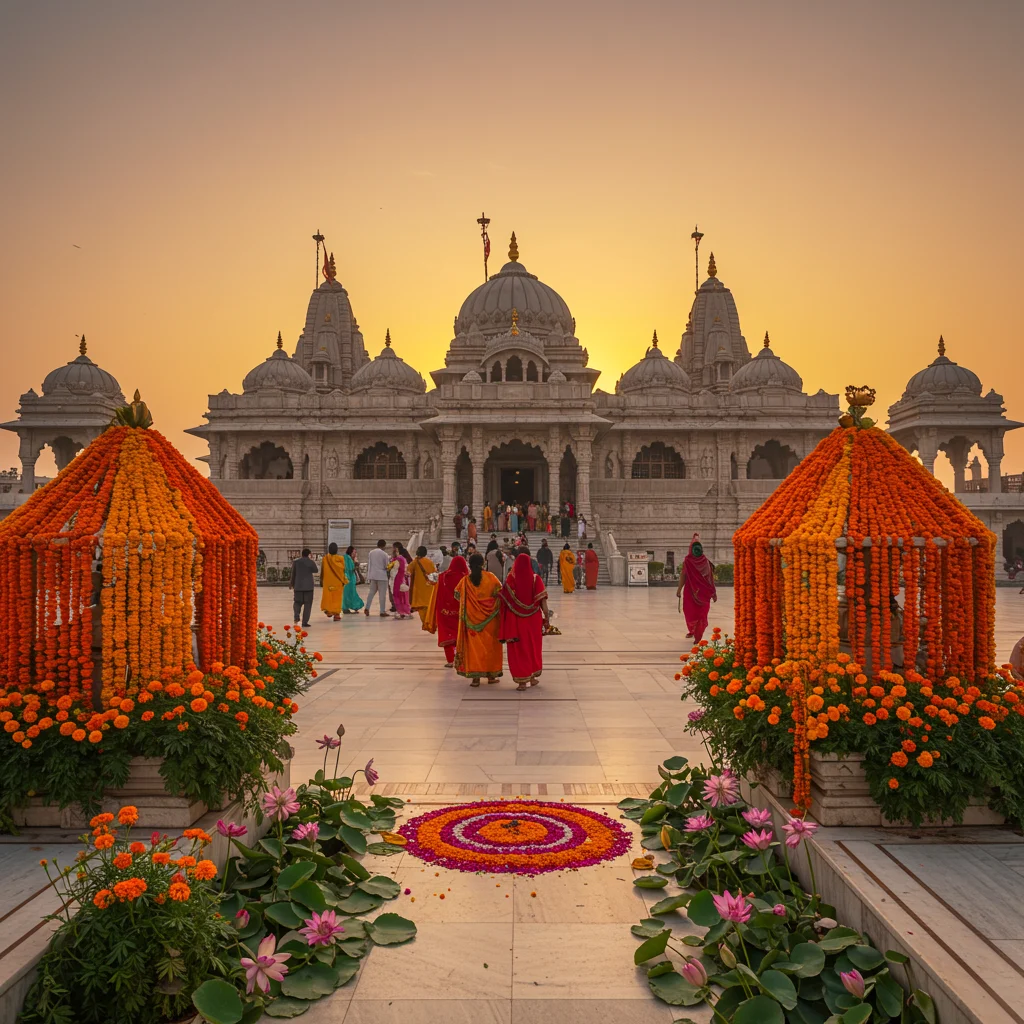
For more helpful travel tips, destination guides, and expert advice, we encourage you to explore Zeosh. Let your next journey be inspired, informed, and truly memorable.








